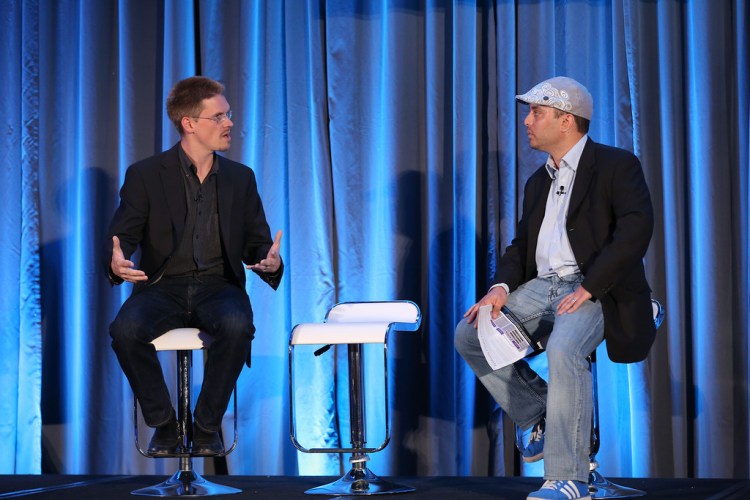SAN FRANCISCO — Most OpenStack vendors deal in software, as you’d expect with an open-source standard for building clouds. Nebula, which supports OpenStack application programming interfaces, stands out with real, live, physical hardware.
But by Nebula chief executive Chris Kemp’s math, his hardware is a sweet deal in comparison with a similar deployment of virtual infrastructure atop Amazon Web Services.
An Amazon cloud consisting of 320 terabytes of storage (at 10 cents per gigabyte per month) and the equivalent of 480 cores (at 12 cents per hour) over three years could easily cost more than $5 million, while a similar setup using Nebula’s Cloud Controller (a two-rack-unit) and off-the-shelf servers would run less than $500,000, Kemp told VentureBeat, after punching some numbers into the calculator app on his iPhone. “That’s an honest, rough estimate,” he said.
It’s also a cost savings of 90 percent — not what most of us are accustomed to seeing in a hardware vs. cloud comparison.
Kemp, a co-founder of Nebula, is no newbie to the cloud. He’s also a co-founder of OpenStack and former chief technology officer at NASA. He speaks clearly about the advantages of using his company’s gear, which connects with servers in a rack through 10 Gigabit Ethernet ports, disk drives, load-balancing capability, and a touch screen. In addition to supporting the OpenStack APIs, it supports those of Amazon Web Services.
“It’s the simplicity of the public-cloud model, but the performance, the locality, the security and the economics of having to run on premise,” Kemp told Reuven Cohen, the chief cloud advocate at Citrix, onstage at CloudBeat, VentureBeat’s conference on the enterprise cloud.
Nebula started shipping its gear in April. It’s racked up customers such as Xerox PARC, the Translational Genomics Institute, various government laboratories, financial-services companies, and a large biotech company, Kemp told VentureBeat.
While such enterprise deployments are good signs that Nebula’s hardware solves real problems, it will be interesting to see if startups with cloud on the brain will be quick to snap up on-premise gear of their own — if they can afford it up front, that is.
VentureBeat's mission is to be a digital town square for technical decision-makers to gain knowledge about transformative enterprise technology and transact. Learn More

